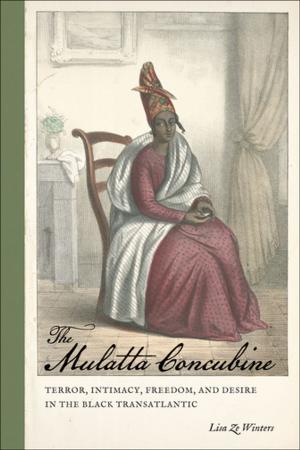White Girl
A Story of School Desegregation
Nonfiction, Social & Cultural Studies, Social Science, Discrimination & Race Relations, Biography & Memoir| Author: | Clara Silverstein | ISBN: | 9780820345888 |
| Publisher: | University of Georgia Press | Publication: | July 1, 2013 |
| Imprint: | University of Georgia Press | Language: | English |
| Author: | Clara Silverstein |
| ISBN: | 9780820345888 |
| Publisher: | University of Georgia Press |
| Publication: | July 1, 2013 |
| Imprint: | University of Georgia Press |
| Language: | English |
This poignant account recalls firsthand the upheaval surrounding court-ordered busing in the early 1970s to achieve school integration. Like many students at the vanguard of this great social experiment, sixth-grader Clara Silverstein was spit on, tripped, and shoved by her new schoolmates. At other times she was shunned altogether. In the conventional imagery of the civil rights era, someone in Silverstein's situation would be black. She was white, however—one of the few white students in her entire school.
"My story is usually lost in the historical accounts of busing," Silverstein writes. At the predominantly black public schools she attended in Richmond, Virginia, Silverstein dealt daily with the unintended, unforeseen consequences of busing as she also negotiated the typical passions and concerns of young adulthood—all with little direction from her elders, who seemed just as bewildered by the changes around them. When Silverstein developed a crush on a black boy, when yet another of her white schoolmates switched to a private school, when she naively came to class wearing a jacket with a Confederate flag on it, she was mostly on her own to contend with the fallout. Silverstein's father had died when she was seven. Another complication: she was Jewish. As her black schoolmates viewed her through the veil of race, Silverstein gazed back through her private grief and awareness of religious difference.
Inspired by her parents' ideals, Silverstein remained in the public schools despite the emotional stakes. "I was lost," she admits. "If I learned nothing else, I did come to understand the scourge of racism." Her achingly honest story, woven with historical details, confronts us with powerful questions about race and the use of our schools to engineer social change.
This poignant account recalls firsthand the upheaval surrounding court-ordered busing in the early 1970s to achieve school integration. Like many students at the vanguard of this great social experiment, sixth-grader Clara Silverstein was spit on, tripped, and shoved by her new schoolmates. At other times she was shunned altogether. In the conventional imagery of the civil rights era, someone in Silverstein's situation would be black. She was white, however—one of the few white students in her entire school.
"My story is usually lost in the historical accounts of busing," Silverstein writes. At the predominantly black public schools she attended in Richmond, Virginia, Silverstein dealt daily with the unintended, unforeseen consequences of busing as she also negotiated the typical passions and concerns of young adulthood—all with little direction from her elders, who seemed just as bewildered by the changes around them. When Silverstein developed a crush on a black boy, when yet another of her white schoolmates switched to a private school, when she naively came to class wearing a jacket with a Confederate flag on it, she was mostly on her own to contend with the fallout. Silverstein's father had died when she was seven. Another complication: she was Jewish. As her black schoolmates viewed her through the veil of race, Silverstein gazed back through her private grief and awareness of religious difference.
Inspired by her parents' ideals, Silverstein remained in the public schools despite the emotional stakes. "I was lost," she admits. "If I learned nothing else, I did come to understand the scourge of racism." Her achingly honest story, woven with historical details, confronts us with powerful questions about race and the use of our schools to engineer social change.















